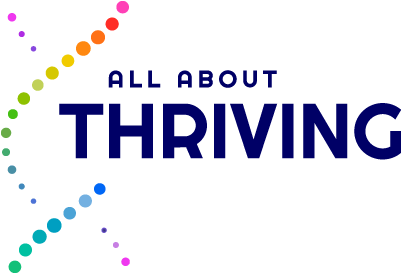We shouldn’t get too caught up in terminology – happiness, wellbeing, flourishing – what matters is that we not only feel good but function well with a sense of growth and progress.
Much of the previous research focused on thriving as one of the possible responses to trauma or adversity – an idea that has been captured in the more recent idea of post-traumatic growth. Our research focused on the more day-to-day thriving that we can experience in our work.
We found that thriving involved some form of challenge or demanding situation that was sometimes exciting, but could also be difficult and uncomfortable. Conversely when we aren’t thriving we may just be relaxing or savouring the present (both very important to our emotional wellbeing), but an absence of thriving might also feel more like languishing, going through the motions or feeling directionless.
Thriving captures ideas about energy, resilience, finding our purpose and connecting with others – all things we can develop – and when we focus on the small steps that make a difference we will thrive more of the time and when it matters most.
Thriving and performance (whether at work or in our studies) build on each other, creating an upward spiral. As we make progress towards our goals – we increase our thriving. And when we are thriving – confident, able to connect with others and open to new ideas – then our performance can only increase.
Finally, when we thrive, we help others thrive. We become the leaders who create the psychological safety for our teams to engage in healthy debate and take on new challenges, provide energy and enthusiasm when it may be hard for them to generate it themselves and we create opportunities for them to be the best version of themselves.


Thriving Schools
Creating a community where everyone has the opportunity to do their best.
Find out more

